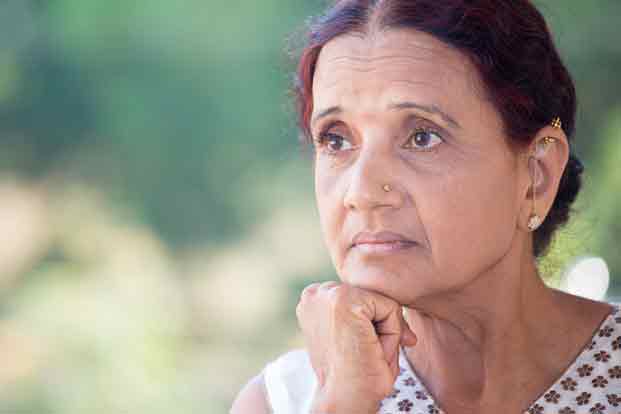How Does Having Kids Affect Premature or Early Menopause?
Apr 19, 2022
When menopause occurs before the age of 40, it is referred to as premature or early menopause. The average age of natural menopause is 48-51 years. Usually premature menopause occurs 10 years earlier than natural menopause. Such a health issue effects around 1% of women.We know that menopause occurs when ovaries stop producing estrogen, the hormone that controls reproductive cycle. Anything that damages your ovaries or stop oestrogen production can cause early menopause. Menopause has severe hormonal , physical and mental effects on a woman’s health. Hence the cessation of the menstrual cycles at an early stage can create havoc.

Causes of Early Menopause:
There are several cause of early menopause.
- Genetic –If the mother had early menopause chances that the daughter will have menopause at the same age.
- Smoking – Smokers have early menopause due to nicotine having antioestrogenic effect.
- Low weight – Very thin ladies who have low BMI usually have early menopause. This is because oestrogan is stored in fat tissues. Women who are very thin have fewer oestrogen stores which gets depleted later.
- Early Menarche – The risk of premature menopause is higher among women who began having menstrual periods at young age and did not have children. Women who started their periods at age 11 or younger were 80% more likely to have premature menopause than those who started their periods at 12- 13 years.
- No Pregnancy – Those who had never been pregnant or never had children had a twofold increase risk of premature menopause. Such women are 30% more likely to have premature menopause.
All these factors leading to early menopause, could allow the doctor to focus on women at most risk and could consider early strategies for preventing and detecting chronic condition that are linked to early menopause like heart disease and osteoporosis.
When should you consult a doctor?
If you in your late 30’s and are experiencing spotting and low blood flow during your periods, it is best that you see a doctor.
Your menopause usually begins with less blood flow, late or missed periods along with basic signs and symptoms of irritability, mood swings, hot flushes and hormonal changes. It is best that you consult a gynecologist, who shall either counsel who or help you with Hormone Replacement Therapy.
What to avoid eating in Pregnancy:
Diet we encourage during pregnancy refers to fine-tuning of eating habits to ensure you are receiving adequate nutrition for the health of you and your baby. Healthy eating during pregnancy is critical to baby’s growth and development. In order to get the nutrients that is needed , pregnant woman must eat from a variety of food groups, including fruits and vegetables, breads and grains, protein sources and dairy products.
Pregnancy Tips:
In pregnancy eat out very often, here are a few tips to help you choose good options for you and your baby:
- Avoid oily and salt laden food items – occasional bread pakoraor burger is fine, but fast food can be high in fat and salt so don’t make it a regular part of your diet.
- Be sure of what you eat – Make sure you know which foods are not safe for you to eat during pregnancy
- Avoid raw stuff – Be careful about food and drinks which have curd, raw vegetables, water or ice.
- Avoid public places – During pregnancy, you are more vulnerable to catching infections so it is best to eat only at places with good hygiene levels
Foods to Eat
The goal is to be eating nutritious foods most of the time . To maximize prenatal nutrition, it is advised that you emphasize on the following five food groups: Fruits, vegetables, lean protein, whole grains and dairy products.
When counseling pregnant women, it is recommended that you fill half their plates with fruits and vegetables, a quarter of it with whole grains and a quarter of it with a source of lean protein, and to also have a dairy product at every meal.
- Fruits and vegetables: Pregnant women should focus on fruits and vegetables, particularly during the second and third trimesters. These colorful foods are low in calories and are filled with fiber, vitamins and minerals.
- Lean protein: Pregnant women should include good protein sources at every meal to support the baby’s growth, such as meat, poultry, fish, eggs, cheese, milk and nuts.
- Whole grains: It is an important source of energy in the diet, and they also provide fiber, iron and Vitamins . At least half of a pregnant woman’s carbohydrate choices each day should come from whole grains, such as oatmeal, whole-wheat or breads and brown rice.
Save
Save







